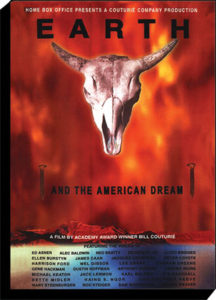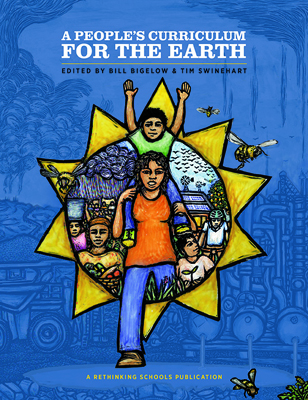 This beautiful and disturbing film recounts America’s story from the environment’s point of view. From the arrival of Columbus to the simple wilderness living of the 16th and 17th centuries, through the agrarian lifestyle of the 18th century, the changes from the Industrial Revolution, to the 20th century when most of the planet’s resources have been depleted — this film examines the North American landscape and all the wildlife destruction, deforestation, soil depletion, and pollution that have been wrought to make the American Dream come true. [Producer’s description.]
This beautiful and disturbing film recounts America’s story from the environment’s point of view. From the arrival of Columbus to the simple wilderness living of the 16th and 17th centuries, through the agrarian lifestyle of the 18th century, the changes from the Industrial Revolution, to the 20th century when most of the planet’s resources have been depleted — this film examines the North American landscape and all the wildlife destruction, deforestation, soil depletion, and pollution that have been wrought to make the American Dream come true. [Producer’s description.]
Bill Bigelow noted in Rethinking Globalization:
Compare the six days of the Book of Genesis to the 4 billion years of geologic time. On that scale, one day equals about 666 million years. All day Monday until Tuesday noon Creation was busy getting the earth going. Life began on Tuesday noon and the beautiful organic wholeness developed over the next four days. At 4 pm Sunday, the big reptiles; 5 hours later when the redwoods appeared there were no more big reptiles. At three minutes before midnight man appeared. One quarter of a second before midnight Christ arrived. At 1/40 of a second before midnight, the industrial Revolution began. We are surrounded by people who think that what we have been doing for 1/40 of a second can go on indefinitely. They are considered normal. But they are stark raving mad.
These words are from the late renowned environmentalist David Brower, spoken toward the end of the film Earth and the American Dream. Loaded with contrasting quotes about humanity’s relationship to nature, Earth and the American Dream convinces most students that since the arrival of the first European settlers — whose leaders spoke of the new land as “a hideous and desolate wilderness, full of wild beasts and wild men” — American culture has celebrated ideas and dreams that are fundamentally hostile to the environment. As the film sweeps through the decades, pairing quotes about nature with images of ecological degradation, students can’t help but be overwhelmed by the language of conquest and consumption woven into the fabric of American life. Perhaps too overwhelmed.
 The film quotes are so effective in portraying a culture consumed with consuming that students may conclude that if only we “rethought” our attitudes toward the earth, we could chart a course to a more environmentally friendly future. What this notion fails to address is the way that the imperatives of the global capitalist economic system propel us toward ecological ruin. Growth, competition, and consumption are not just ideological constructs, they are systemic requirements. Ideas matter, but so do the economic structures that animate and in turn are nurtured by ideas. I wanted to create an activity in which students could experience classroom doses of the economic pressures felt by competing producers. Then when my students considered solutions to the environmental crisis, I hoped such reflection would be grounded in a fuller appreciation of the roots of that crisis.
The film quotes are so effective in portraying a culture consumed with consuming that students may conclude that if only we “rethought” our attitudes toward the earth, we could chart a course to a more environmentally friendly future. What this notion fails to address is the way that the imperatives of the global capitalist economic system propel us toward ecological ruin. Growth, competition, and consumption are not just ideological constructs, they are systemic requirements. Ideas matter, but so do the economic structures that animate and in turn are nurtured by ideas. I wanted to create an activity in which students could experience classroom doses of the economic pressures felt by competing producers. Then when my students considered solutions to the environmental crisis, I hoped such reflection would be grounded in a fuller appreciation of the roots of that crisis.
Produced by Luna Productions.









Twitter
Google plus
LinkedIn